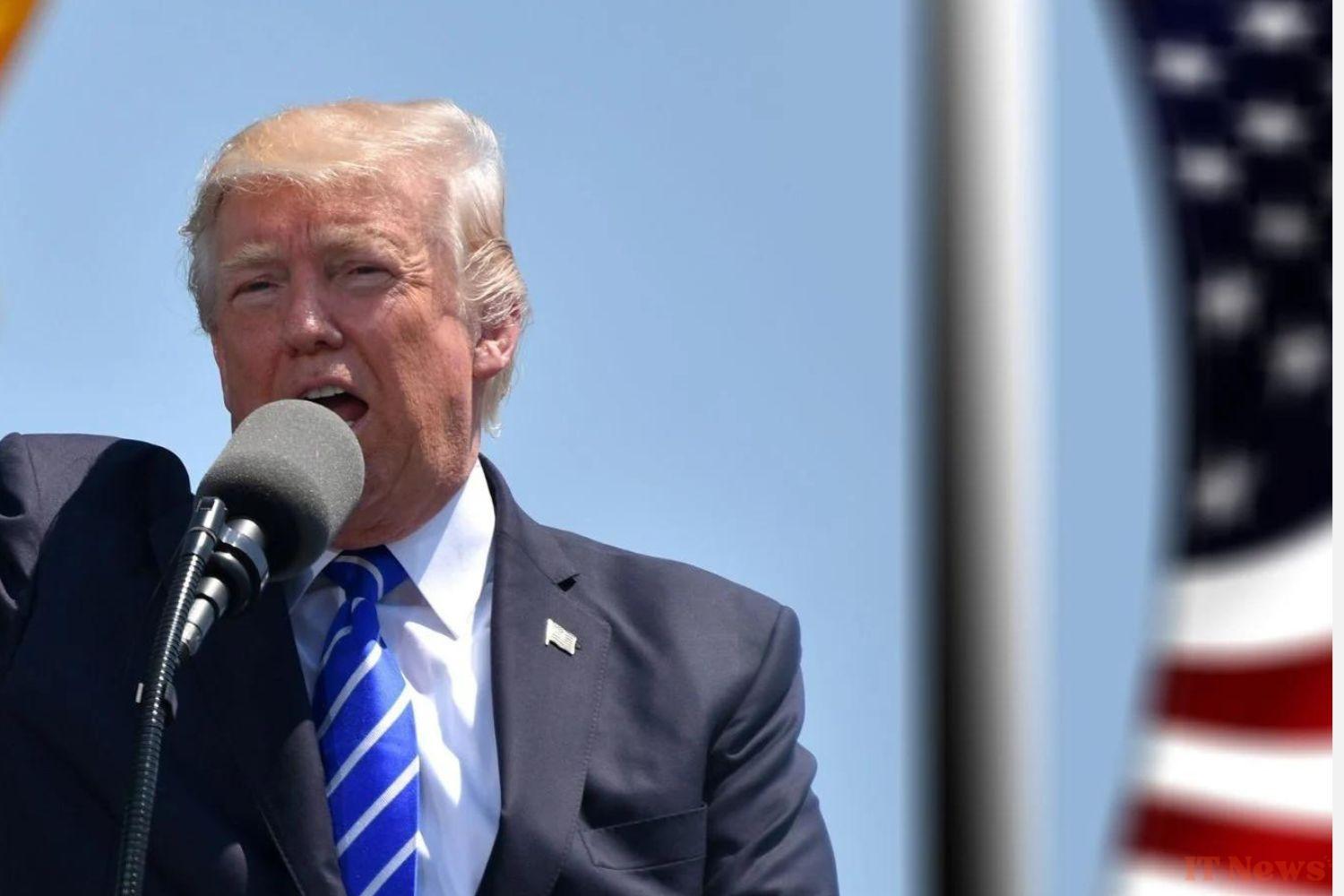After the carrot – the Chips Act, the massive plan for subsidies on semiconductors – the stick: while the sector had been spared until now by Donald Trump, electronic chips are now in the sights of the American president. "Semiconductors (manufactured abroad, editor's note) should be subject to higher customs duties", declared the American head of state on Tuesday, February 18, during a press conference echoed by Reuters on Wednesday, February 19. Since his return to the White House, the billionaire has repeatedly threatened additional customs duties in various sectors, such as steel and aluminum, whose new taxes should apply by next month.
But until last Tuesday, there was no mention of semiconductors, these essential components for smartphones, computers and even artificial intelligence - even if the American president had criticized, last January, American companies that have their chips manufactured in Taiwan, namely: Apple, AMD, Broadcom, Nvidia and Qualcomm.
On Tuesday, the septuagenarian first announced new customs duties on cars that would be around 25%, and which would be announced "probably" on April 2. Before adding that there will also be increases in customs duties for pharmaceutical products... and semiconductors.
An incentive to come and set up in the United States
"It will be 25% and more, and it will increase considerably over the course of the year," he assured without giving a clear deadline. For the American president, it would be a question of attracting chip manufacturers to the country. "When they come to the United States and set up their factory there, there are no customs duties," said the White House tenant.
The fact that the American administration has been seeking for several years to attract semiconductor manufacturers to the country is not new. His predecessor Joe Biden had already, with his "Chips Act" in 2022, a massive $52.7 billion plan, encouraged manufacturers to choose the United States for their future factories. And while many factory projects are underway in the country, such as that of Taiwan Semiconductor Manufacturing Company (TSMC) in Arizona, the various measures adopted by the American administration have not fundamentally changed the current chip system, which still relies on outsourcing semiconductor manufacturing to Asia.
While chips are generally designed in the United States, such as at Nvidia, the industry leader, they are then manufactured at Samsung, SK Hynix (South Korea) and especially at TSMC, in Taiwan, where the majority of semiconductors come from today. The island is also regularly accused by Donald Trump of having "stolen the American chip industry" - a statement that is disputed by many experts.
A repercussion on future prices
Questioned by our colleagues at CNN this Wednesday, neither Nvidia nor TSMC wished to comment on these statements. Will these threats encourage Asian companies to set up or further develop in the United States? Perhaps. But in the meantime, these potential new customs duties, if they are confirmed, could hit hard the Asian semiconductor giants, who should in the short term pass on this potential tax on their prices. But not only that.
American industries, which buy these chips, would then see their production costs increase... which should also encourage them to raise their prices. Enough to hit American consumers who will have to pay more to buy their PCs, smartphones or cars.
This impact on prices is far from hypothetical. The giant Acer, which manufactures its PCs in China, was hit by the 10% increase in customs duties imposed by Donald Trump on Beijing on February 1. And the group has just announced, in the pages of the Telegraph, that the prices of all its products sold in the United States will increase... by 10%. Enough to prompt some experts to warn that Donald Trump's trade war could ultimately harm the entire American economy... something that Donald Trump seems, for the moment, to be ignoring.



0 Comments